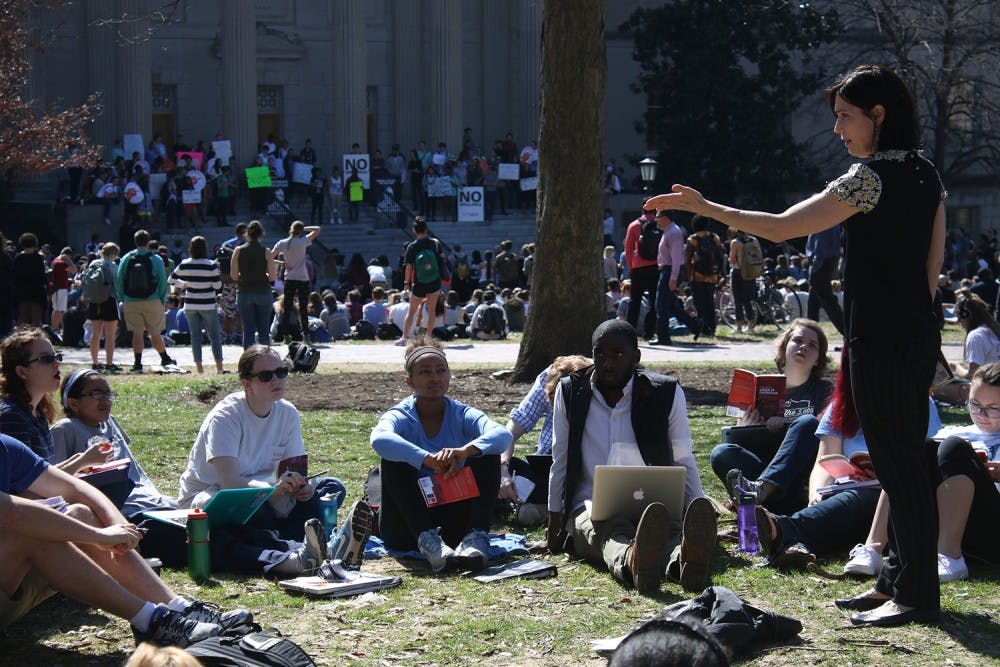Women's roles may not be the first thing to come to readers' minds when discussing Shakespeare, but Mary Floyd-Wilson, chairperson of the Department of English & Comparative Literature, studies just this.
Floyd-Wilson published the book "Occult Knowledge, Science, and Gender on the Shakespearean Stage" in 2013. The book highlights how gender relates to the way characters were seen throughout Shakespearean plays and women were demonized in the media. Analyzing Shakespeare while assessing the perspectives that haven’t been shared is a part of feminist historiography.
“Feminist historiography means examining not only history but how we tell history and who tells history,” graduate student Margaret Maurer said. “So historiography as a term means studying the process through which history is told. So engaging in feminist historiography is meant to be disrupting historical narratives in which history for centuries has been written by people who have power.”
Maurer’s research relates to 16th and 17th century alchemy, which was primarily practiced by women. While many think about magical elements when it comes to alchemy, Maurer focuses on commonplace activities that were considered alchemy. For example, cooking and creating makeup were both considered forms of alchemy. Floyd-Wilson is both her teacher and adviser and has greatly influenced Maurer’s research.
Floyd-Wilson teaches Shakespeare, Survey of English Literature, Shakespeare's Women in Context and English Renaissance Drama. The students in these classes inspire her as much as she inspires them, she said.
“I’m very impressed right now with my current honors thesis student, although I don’t want to embarrass her in the article, but she’s super smart and absorbs everything,” Floyd-Wilson said. “And says things about the plays that I haven’t thought of.”
Floyd-Wilson’s research within the study of comparative literature ranges from how the devil is shown in plays to the power of women. Her wide variety of research topics has earned her multiple distinguished scholar awards. She has mentored students who have gone on to hold doctorates, such as Katherine Walker, an English professor.
“She’s an incredibly kind, open person. So, when I came to grad school, I was just so nervous. I was a mess,” Walker said. “She immediately reassured me, ‘There were steps that you could take, like you’re going to get your degree.’ I think one of the most important things about a mentor is that they are an advocate for you, and that’s definitely what she is.”
Walker teaches Rhetoric & Composition and British Literature, Medieval to 18th Century. Her research focuses on scientific print and early modern drama. Many of her publications relate to witchcraft and magic, which are themes that are a part of Shakespeare’s plays.




